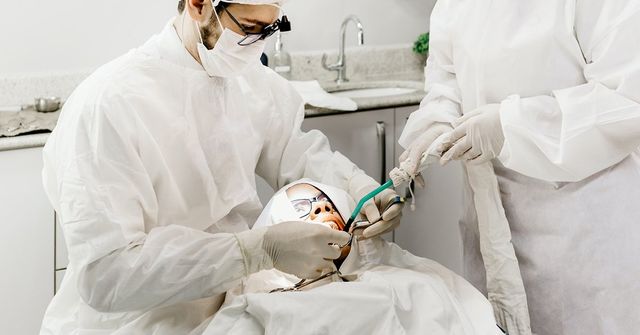Major Oral Surgery Recovery Time : Essential Tips for a Speedy Recovery
Recovery time for major oral surgery can vary, but typically takes around two weeks. It may take longer for more complex procedures.
Recovering from major oral surgery can be a daunting process, but understanding what to expect can help alleviate some of the anxiety. After undergoing procedures such as wisdom teeth removal, jaw surgery, or dental implants, it’s important to allow adequate time for the body to heal.
The initial two weeks following surgery are crucial, as this is when most swelling and discomfort will occur. During this time, it’s crucial to follow post-operative care instructions, such as managing pain and swelling, maintaining oral hygiene, and sticking to a soft diet. By being mindful of these guidelines and allowing ample rest, patients can make a smooth recovery and return to their normal routines with minimal complications.

Credit: www.sparkledental.com
Preparing For Surgery
Preparing for Surgery: It is important to understand the procedure thoroughly before embarking on the surgical journey. Prior to the surgery, arranging post-surgery care is essential. This involves planning for rest and recovery time, ensuring that the necessary support and assistance will be available. This preparation phase plays a crucial role in facilitating a smooth recovery process post-surgery.
Essential Tips For A Speedy Recovery
Nutrition and Hydration – Consuming a balanced diet rich in vitamins and minerals is crucial for a speedy recovery following major oral surgery. Adequate hydration is also essential to promote healing and prevent complications.
Resting Strategies – Ensuring ample rest is vital in the recovery process. Proper sleep and relaxation aid in the body’s ability to heal and regenerate. It is important to follow post-operative instructions provided by the dental or medical professional.
Pain Management – Managing pain effectively is key in promoting comfort and facilitating the recovery process. Following prescribed pain medication and utilizing cold packs as directed can aid in minimizing discomfort.
Safe Exercises for Faster Healing – Engaging in gentle, low-impact exercises as advised by the healthcare provider can enhance circulation and promote faster healing without compromising the surgical site.
Immediate Post-op Care
After major oral surgery, it is crucial to follow the doctor’s instructions for immediate post-op care. Managing bleeding and swelling is essential during this recovery period. This involves regularly changing gauze pads, applying ice packs, and avoiding activities that can increase bleeding. It is also important to be aware of the signs of complications, such as excessive bleeding or severe swelling, and seek prompt medical attention if they occur.
First Week Recovery Tips
For the first week after major oral surgery, it is crucial to prioritize oral hygiene practices. Gently brush your teeth and rinse your mouth with a saltwater solution to prevent infection and promote healing. When it comes to eating and drinking, opt for soft, easy-to-chew foods and avoid using a straw to prevent dislodging blood clots. Stay hydrated with water, but avoid hot beverages. Adjust your activity level by avoiding strenuous exercise and getting plenty of rest to aid in the recovery process.
Long-term Healing Strategies
Long-Term Healing Strategies: After undergoing a major oral surgery, it is crucial to prioritize the support of overall health. This includes maintaining a balanced diet and staying hydrated to aid in the healing process. It is important to gradually resume normal activities to avoid strain on the body. Monitoring progress is essential, and follow-up appointments should be scheduled to ensure proper recovery and address any concerns.
Conclusion
Understanding the recovery time after major oral surgery is essential for planning and decision-making. Patients should closely follow their dentist’s post-operative instructions to ensure a smooth recovery process. By maintaining proper oral hygiene and following the prescribed care routine, individuals can expect a faster and more successful recovery.


